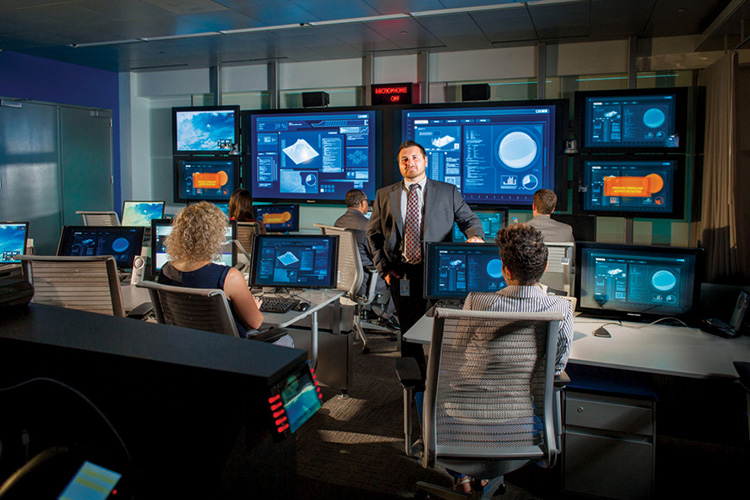Protect Your Data!

Beyond firewalls and out-moded detection software, Tedesco teaches clients how to use next-generation security tools to protect their data. In an industry that grows exponentially each year, potential for workers with the right skills—and personality traits—is open-ended. Tedesco recently switched from intensive analysis/forensics work at client sites to consulting work he can do from remote locations, including his home.
Think Before You Click
If you receive an e-mail requesting confidential information you were not expecting to receive, treat it with suspicion. While it may have come from a trusted source, confirm with a phone call before replying back with the information. The number one vector by which hackers break into a computer is by e-mailing a user and having them either download a malicious file or click on a link that takes them to a malicious website. If you do not recognize the sender or receive an unexpected e-mail, think twice before opening it.
Protect Your Passwords
Longer passwords are proven to be more secure than short, complicated passwords. Passwords of at least 15 characters are recommended.
Use Unique Passwords
Shared passwords across different accounts are a primary means by which hackers break into personal and confidential data. (You can check if your account has already been compromised in a large breach by going to https://shouldichangemypassword.com). If you have difficulty remembering passwords for different accounts, there are several secure tools that can help with this and still keep your passwords safe (e.g., KeyPass or LastPass).
Be Vigilant to Patch and Update
Every week, new security patches are being developed to fix vulnerable systems. Regularly run your updater software or check vendor websites to ensure that your system is running the latest, most secure software version.
Use the Right Prevention and Detection Tools
While antivirus solutions on their own no longer can be considered a comprehensive solution to protect your computer, the right ones still can be useful. Antivirus performance varies from year to year; what might have been a great solution in 2013 may not be sufficient in 2014. With this in mind, it is recommended to regularly scan your system with a highly rated antivirus solution. Many sites like http://anti-virus-software-review.toptenreviews.com do a great job of ranking various antivirus solutions. As mentioned in the point above, it is essential to regularly update your antivirus software to ensure you are using the latest detection signatures.
—Benjamin Tedesco ’02








Follow Us